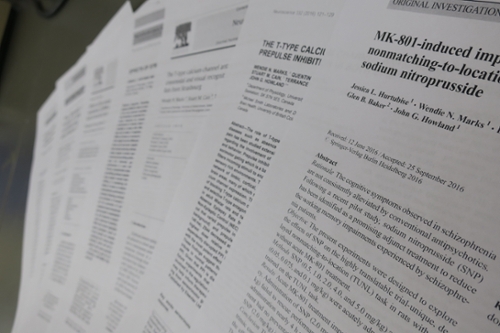Our Research
Research Aims
The neurobiological mechanisms supporting cognition remain poorly understood. Converging lines of evidence suggest that cognitive processes including learning, memory, and decision making rely on activity in cortical regions and other interconnected areas of the meso-cortico-striatal-limbic circuitry. Such circuits are profoundly important for healthy cognition, but the mechanisms and interactions involved are not well characterized. Therefore, understanding how interactions between striatal regions and cortical regions influence higher order cognitive functions like working memory will provide insight into the neurobiological mechanisms underlying cognition. Experiments in this line of research use a combination of sensitive behavioural testing and viral vector-based approaches to examine meso-cortico-striatal-limbic interactions underlying cognitive behaviours. The results of these experiments will significantly increase the understanding of advanced cognitive functions such as learning and memory from an integrated behavioural and physiological perspective. This work is supported by an NSERC Discovery Grant.



